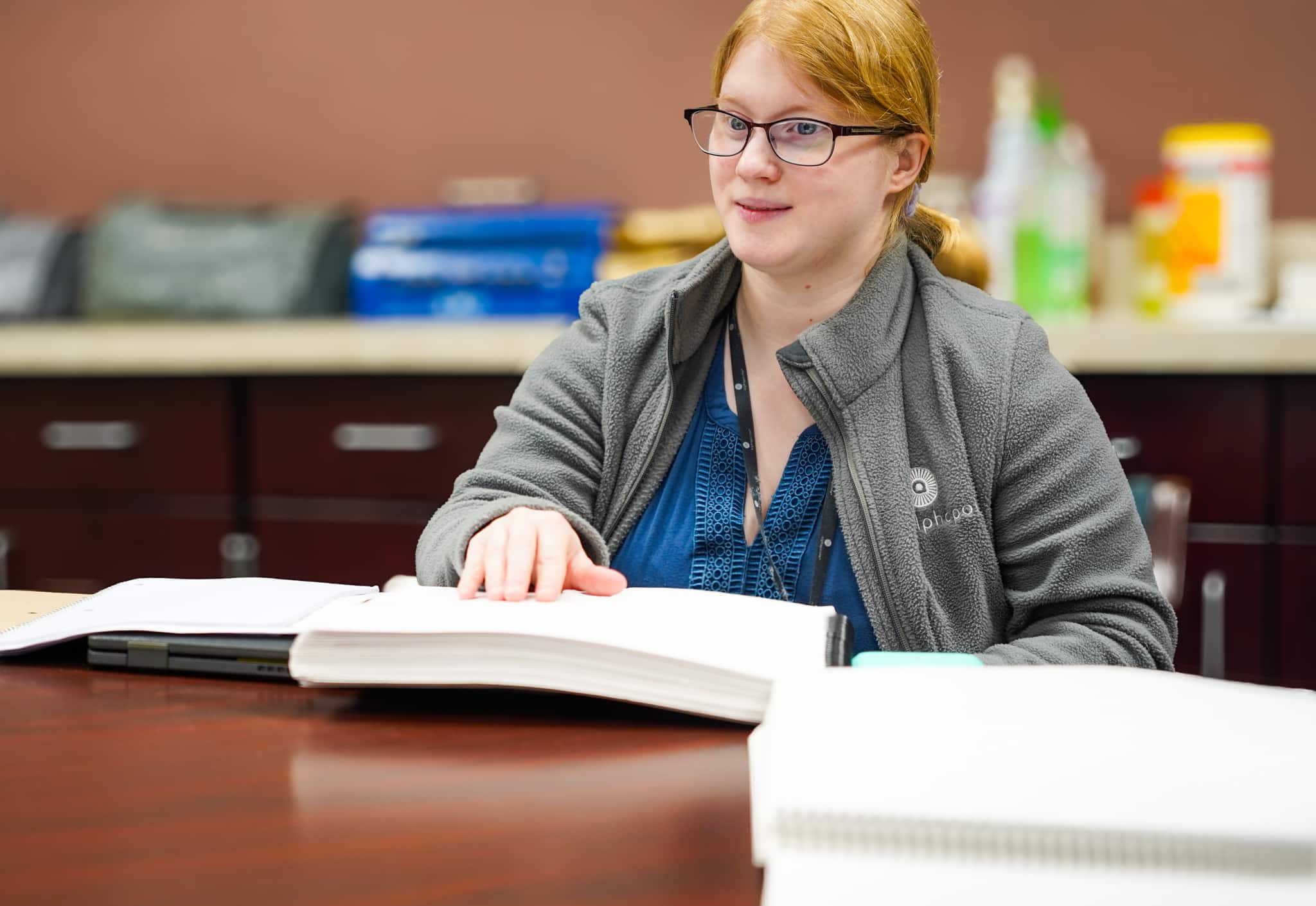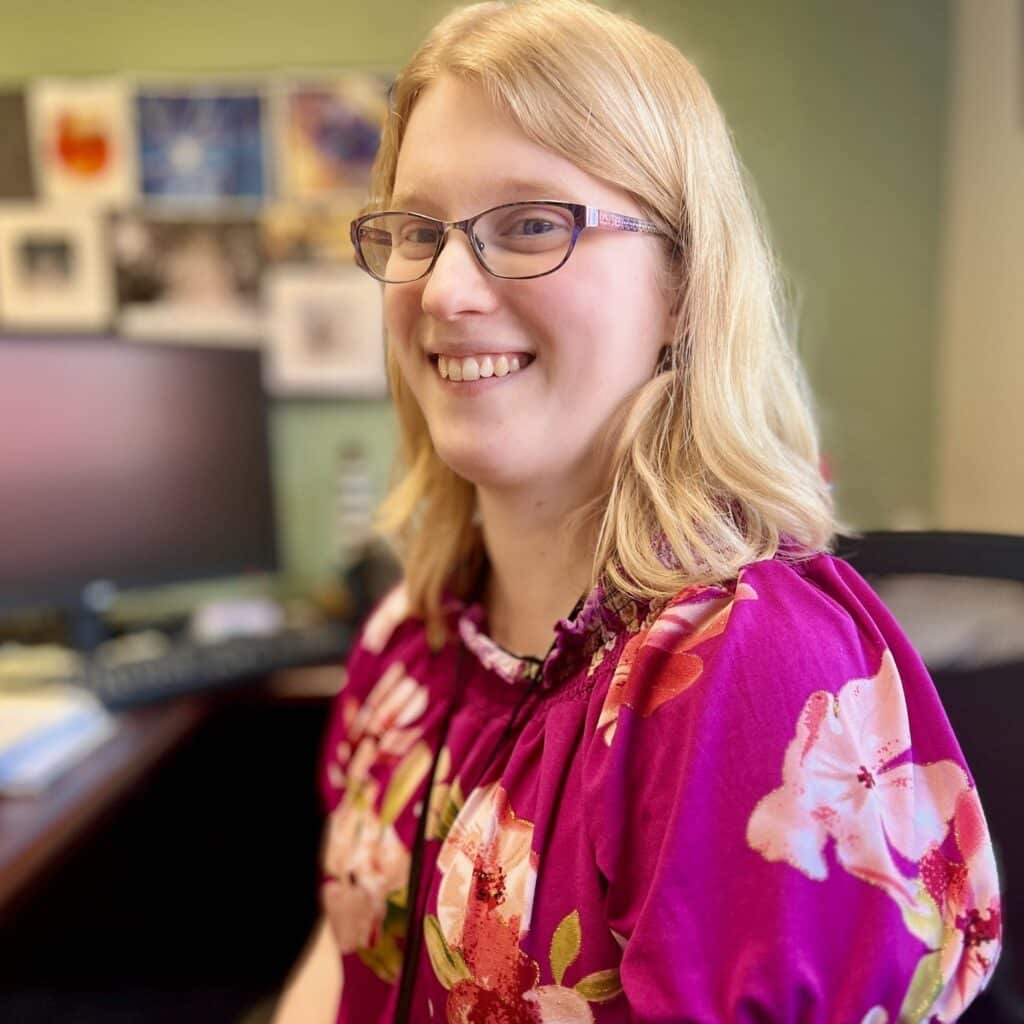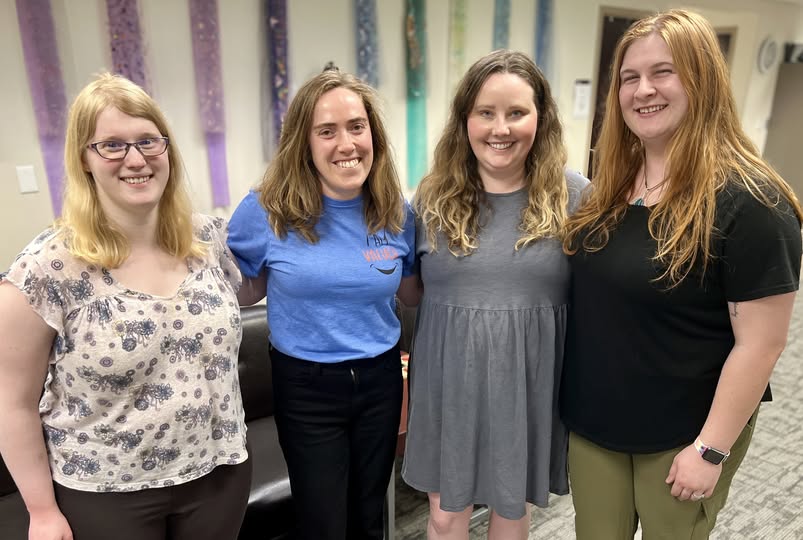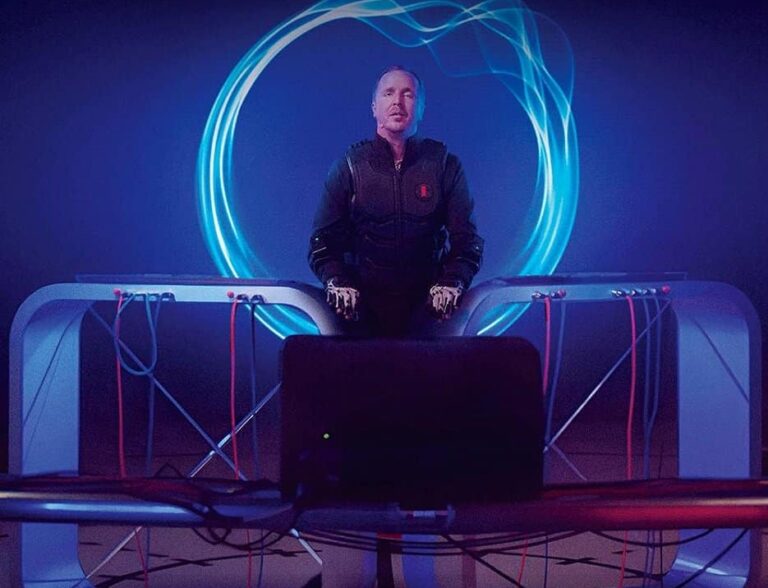Through Our Eyes: Emily Haapala

“Adversity helps shape who you are.” – Emily Haapala
It is a frigid morning in Kansas City, Missouri, and the ground outside the office window is blanketed in snow with a deep grey sky that promises more to come.
Inside the warm office, a 28-year-old woman sits at her desk preparing for clients. The young woman, Emily Haapala, is an identical twin. She was also born with a condition known as Oculocutaneous Albinism, a genetic condition that causes low pigmentation in the hair, skin and eyes. Her situation – and vision loss – might go unnoticed by most because Emily maneuvers well despite her vision loss. And her pigmentation in her skin and hair actually deepens as she ages.
“I didn’t want to feel different, and I didn’t want to be judged by my peers for being different.”
Her desk is covered with materials for the clients she serves. As a vision rehabilitation therapist at Alphapointe, they are primarily in Braille because she uses them to help clients learn how to read it.
Keeping Her Vision Loss A Secret
Emily grew up in Olympia, Washington, where she attended the local public school. Throughout her time there, Emily felt strongly that she did not want to expose herself as being visually impaired. “I didn’t want to feel different, and I didn’t want to be judged by my peers for being different,” she says.
While it is not uncommon for a teenager to not want to be different from their peers, these feelings were strengthened when Emily’s sophomore biology teacher told her rather vehemently that she did not possess the condition she had been diagnosed with. The treatment by her teacher discouraged Emily even more from using any adaptive technology that might cause her to stick out among the other students.
Although she managed, there was one exception: Emily needed large print sheet music for the orchestra. “I played violin,” she says. “And standard sized sheet music when you are visually impaired is very hard.”
Emily pursued her higher education at Western Washington University, where she earned a bachelor’s degree in psychology.

“That is where the whole idea of working with people who are visually impaired started,” Emily says. While attending college, Emily became involved with the Washington State Department of Services for the Blind (WSDSB). That is how she was first exposed to others who were completely blind or visually impaired like her. After two summers working for the WSDSB peer mentor program, she knew that she wanted to serve the visually impaired and blind community for a living.
Off to Illinois, Then to Missouri
After careful consideration, Emily decided to head off to Illinois to attend a college that had a program specializing in blindness and visual impairments. She would earn dual master’s degrees in orientation and mobility and vision rehabilitation therapy. When one of her professors told her about a job opening at Alphapointe, she felt like it had all come together exactly the way it should.
Emily has now been with Alphapointe for a couple years, and is the vision rehabilitation therapist working primarily as the braille and academics instructor; however, due to Emily’s duel certification, she often helps in various capacities at Alphapointe. Emily will act as an orientation and mobility instructor if the need arises, as well as assist with activities of daily living, including cooking, cleaning, money management and other skills required for managing a home.

Lacey, and Amber.
She also instructs with assistive technology, helping teach others to use programs such as JAWS or zoom text (screen readers), and she also works as a Braille transcriber, where she takes print documents that are sent to her and transcribes them into Braille for some of the blind students in the area.
A Journey of Service
Emily’s journey has taken her from Olympia, Washington, to different parts of Illinois, and finally to Kansas City, Missouri, but most of all it has taken her from being a young girl not wanting to stick out due to her visual impairment, to a proud, educated, extremely talented, hard working and compassionate young woman who is having a positive effect on the lives of those around her each and every day.
When speaking about how she feels about her visual impairment now, Emily was adamant.
“NO, I wouldn’t change it,” she says. “Its what makes me who I am. My life would be very different, one might say normal, but adversity helps shape who you are.”





